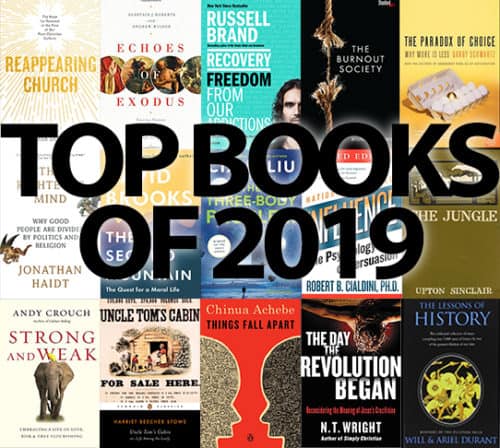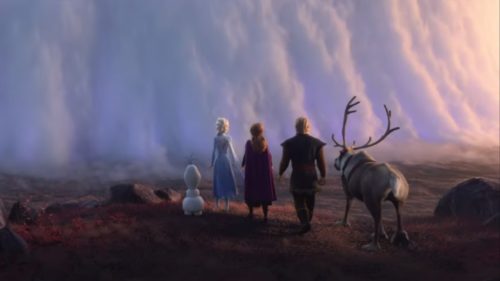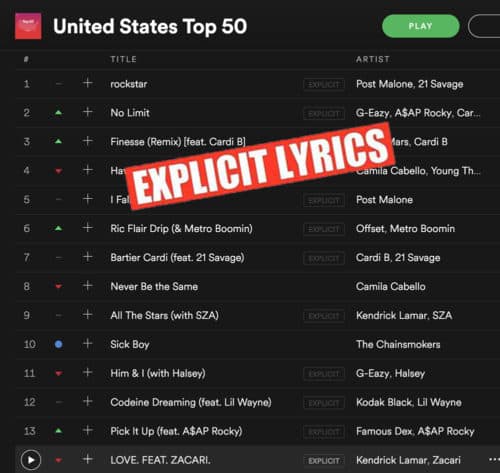The 2010s were for me the decade I learned to love reading. In 2015 I decided I wanted to read more – I read 17 books. The next year 52. In 2017, 100. And 100 again in 2018. In 2019 I wanted to read less and synthesize more, so I read 67.
Of the close to 400 books I read this decade, these are the 10 best. Or I should say – these 10 books changed my life in the 2010’s. They’re ranked in order of impact on my life. Because one thing I like more than reading, is sharing life-changing books with others!
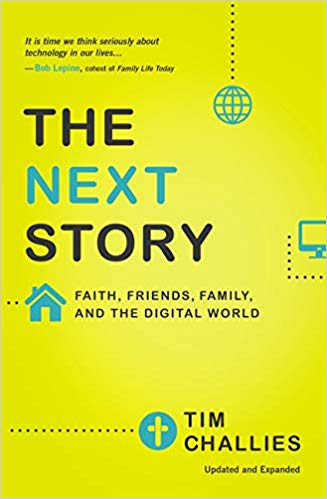
1) The Next Story by Tim Challies
Of all the books on this list, this one probably changed me the most. When I read this in 2011 I was very addicted to this new technology called an iPhone.
The key to loosening its hold – trying to understand the “why.” What was I looking for in constantly checking my phone?
For me it was Informationism. Informationism is “a non-discerning vacuous faith in the collection and dissemination of information as a route to…personal happiness.” If I just read one more blog post on marriage, parenting, ministry…THAT would be the key that solves everything (can any other Enneagram 5s relate?).
Major takeaways:
Distraction is the biggest threat to my walk with God. “Distraction is the enemy of deep thinking.” A distracted life is a shallow life.
I believe that more information is what I need. When in fact, “More information may lead to less wisdom.” I need to take in less information and seek more wisdom.
“We need to devote more time to less things.”
The two chapters on distraction and the flood of information are worth the price of the book.
You can read my full GoodReads review here.
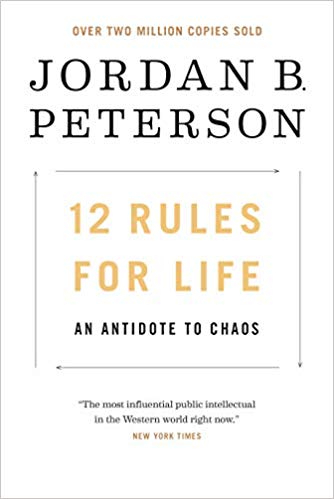
2) 12 Rules for Life by Jordan Peterson
No one has shaped my thinking more in the past few years than Jordan Peterson. In 12 Rules, Peterson is essentially asking – “How can one live the good life?” Though not a Christian, Jordan Peterson gets so much right. SO much. In his words:
- We all fall short of the glory of God
- We have missed the mark because of original sin
- And the goal is to get back to walking with God
- What do we do with our falling short?
- Dr. Peterson’s answer is “grow the hell up.” He is unable to see grace.
The foreword by Dr. Norman Doidge ends on this intriguing note: “Perhaps, as unfamiliar and strange as it sounds, in the deepest part of our psyche, we all want to be judged.”
You can read my full GoodReads review here.
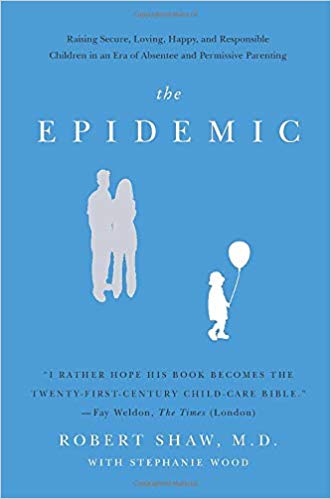
3) The Epidemic by Robert Shaw M.D.
This is my favorite parenting book. As I spent much of the 2010’s parenting our 5 kids, this book was incredibly helpful. It’s not a Christian book but it provides a framework for parenting that is very helpful. A few key concepts:
- Ages 1-4 are foundational
- Children crave firm, consistent boundaries (they want to know what is permissible).
- A child’s world must not revolve around themselves (they need to hear no in order to develop empathy and to learn to think of others first).
- “There is almost no normal situation in which you should be asking your child’s permission” (ending sentences with “OK?”).
- The key is always choosing to engage- to follow through on what you said you were going to do (and not ignore small disobedience). Even when you’re exhausted, if you said, “if you do that one more time I’m gonna_____” then if they do it one more time you must follow through.

4) The Harry Potter Series by JK Rowling
Besides being my all-time favorite work of fiction, this series, more than anything else, made me a reader.
I started reading it out of a combination of wanting to keep up with what my kids were reading (and loving!) and my wife encouraging me that I would really like it. I discovered something – reading is fun! Before reading Harry Potter, I hadn’t read a fiction book in over 15 years. I thought it was a waste of time. I’d read an occasional leadership or devotional book. But I was not a reader.
Takeaway- the way to be a reader is to read what you want to, and slowly work your way into more challenging books!

5) Atomic Habits by James Clear
A major key to life is “to emphasize any single moment less and the accumulation of moments more.”
Few things have shaped my learning this decade more than the idea of habit: we are what we repeatedly do. I could have also listed The Power of Habit by Charles Duhigg. Power of Habit is more stories and the “why” behind habits. Atomic habits gives very practical ways to make small changes that will yield big results.
“If you want to predict where you’ll end up in life, [just] follow the curve of tiny gains/losses…how your daily choices will compound 10 years down the line. Are you spending less than you earn each month? Are you reading books & learning something new each day?”
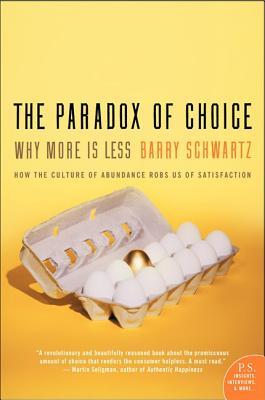
6) The Paradox of Choice by Barry Schwartz
Maybe more than any other secular book, Paradox of Choice gets to the heart of our current malaise.
“As a culture we are enamored of freedom, self-determination, & variety, & we are reluctant to give up any of our options. But clinging tenaciously to all the choices available to us contributes to bad decisions, to anxiety, stress, & dissatisfaction–even to clinical depression.”
“If unrestricted freedom can impede pursuit of what we value most then it may be that some restrictions make everyone better off. If ‘constraint’ sometimes affords liberation while ‘freedom’ affords enslavement then we’d be wise to seek out some measure of appropriate constraint”
5 keys:
- We’d be better off embracing voluntary constraints on our freedom of choice, instead of rebelling against them.
- We’d be better off seeking what’s “good enough” instead of seeking the best
- We’d be better off lowering our expectations about the results of decisions
- We would be better off if the decisions we made were nonreversible.
- We would be better off if we paid less attention to what others around us were doing.
You can read my full GoodReads review here.

7) Reappearing Church by Mark Sayers
Mark Sayers brings much needed HOPE to the dismal realities of our modern world. His most helpful insight: times of crisis are actually opportunities for God to move in revival.
Sayers combines a broad understanding of modern times with a historical pattern of how revivals happen.
He thinks we are time is primed for revival: “history shows it’s precisely at moments like this–when the church appears to be sliding into unalterable decline, when culture is shaken by upheaval, when the world globalizes, opening up new frontiers & fostering chaos/change–that God moves again”
You can read my full GoodReads review here.

8) Recovery: Freedom from Our Addictions by Russell Brand
Recovery is a vulgar, brutally honest, modern day Ecclesiastes; with Brand, a self-described “half-wit King Solomon”.
Drugs, alcohol, sex, fame, fortune- Brand tried it all and found it wanting. Brilliantly insightful into the human condition and very helpful re how to escape the bondage of desire.
Almost daily, I find myself thinking about the wisdom in this book. Especially his “Step 1” (from Alcoholics Anonymous): I am “powerless over this and my life has become unmanageable.”
Fair warning: LOTS of cuss words!
“Counterintuitively, in our culture of individualism and self-centred valour, it is by surrendering that we can begin to succeed. It is by ‘admitting that we have no power’ that we can begin the process of accessing all the power we will ever need.Where I have found this program most rewarding and yet most challenging is in the way that it has unravelled my unquestioned faith that I was the centre of the universe and that the purpose of my life was to fulfill my drives…Can I now accept there is a power greater than me at work in this cosmos? I don’t have to ally with it yet, all I have to do is accept that my thoughts and I are not the apex of human experience.”
You can read my full GoodReads review here.
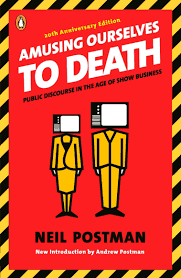
9) Amusing Ourselves to Death by Neil Postman
Written in 1985, Amusing could not be more relevant to our modern world and humankind’s endless appetite for distraction. Postman has an incredible ability to make sense of vast amounts of history- to explain how (and why) we got to now, especially as it relates to technology.
Postman explains so much of our world- how technology affects our ability to think, and the resulting effects: anxiety and outrage (instead of reasoned discourse).
Postman puts into words what many of us feel — the glut of information causes anxiety, incoherence, and impotence. In the place of meaning, technology gives us amusement.

You can read my full GoodReads review here.
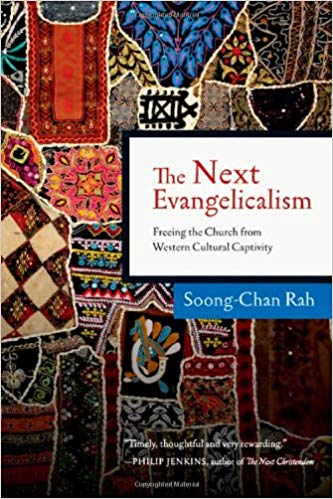
10) The Next Evangelicalism — Soong-Chan Rah
Dr. Rah makes a compelling case that the future of Christianity in America rests on the shoulders of immigrants and ethnic minority leaders (owing much to their “liminality”- ability to move fluidly in between cultures). He opened my eyes to the work God is doing in our country and around the world (along with the book The New Faces of Christianity: Believing the Bible in the Global South). A few key takeaways:
“Unless [churches/parachurches] see growth among the ethnic minority population within their [congregation] they will experience steady decline.”
“Contrary to popular opinion, the church is not dying in America; it is alive and well, but it is alive & well among the immigrant & ethnic minority communities”
The flood of immigrants in the past few decades has been a God-ordained action to save the American church.
You can read my full GoodReads review here.

Honorable Mention: For the Love of God by DA Carson
Not a traditional book – more so a Bible reading plan/devo. But truly life changing. I’ve read the Bible using Carson’s plan/devo for each of the last 5 years. NOTHING has changed my life more than consistently reading through the Bible. And Carson’s devo/plan was the key to making that a reality in my life.
